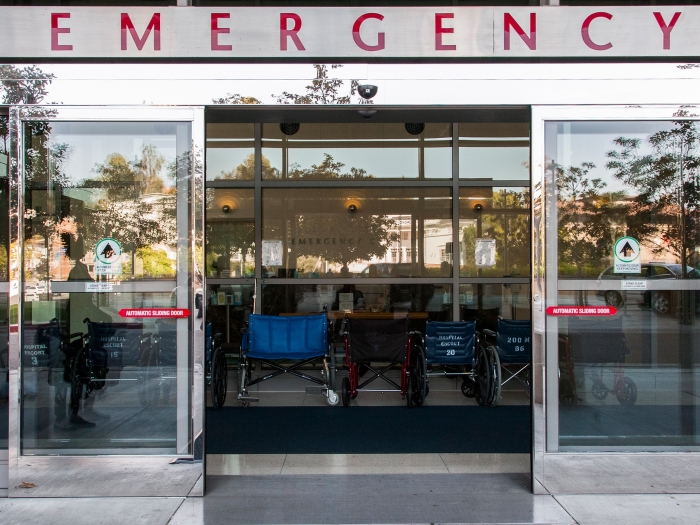The condition affects around 900,000 Americans each year
5:00 AM
Author |

Over the last 20 years, treatments for pulmonary embolism advanced greatly.
Several new therapies were developed alongside widespread adoption of emergency response teams for the condition, which is marked by a blockage of the arteries in the lungs often caused by a blood clot.
Despite these innovations, a Michigan Medicine study finds that the death rate for pulmonary embolism remains high and unchanged in recent years – more often killing men, Black patients and those from rural areas.
The results are published in the Annals of the American Thoracic Society.
SEE ALSO: Complications for procedure to open clogged pulmonary arteries decrease significantly
“These findings are surprising and counterintuitive to the advancement in care for patients with pulmonary embolism over the last decade, as well as other studies suggesting a downward trajectory in mortality from other major causes of cardiovascular death,” said lead author Mohamed Zghouzi, M.D., who was a vascular medicine fellow at the University of Michigan Health Frankel Cardiovascular Center at the time the work was done.
Researchers analyzed over 100,000 deaths related to pulmonary embolism between 2006 and 2019 using national data from the Centers for Disease Control and Prevention.
They found that the death rate due to pulmonary embolism did not change significantly from 2.8 deaths per 100,000 people over the course of the decade. However, the mortality rate increased significantly among men, as well Black patients, who were nearly two times more likely to die from the condition compared to white patients.
In rural areas, 4 patients per 100,000 died of pulmonary embolism, which is nearly double that of large metropolitan areas.
“Seeing a higher incidence of blood clots, including pulmonary embolism, in Black populations, patients in rural areas and those with lower socioeconomic status suggests that social determinants of health play a role in the incidence and outcomes of venous thromboembolism,” said Geoffrey Barnes, M.D., M.Sc., co-author and associate professor of cardiology-internal medicine at U-M Medical School.
Pulmonary embolism is most often caused by a blood blot in the legs, called deep vein thrombosis, that travels through the body up to the lungs. It affects around 900,000 people in the U.S. each year, with 10-30% of people dying within one month of diagnosis, according to the American Lung Association.
“These findings highlight a need for both increased funding for research focused on the underlying causes of these mortality rates and disparities, as well as targeted interventions and programs aimed at improving outcomes for pulmonary embolism in all patients,” Barnes said.
Additional authors include Hunter Mwansa, M.D., Supriya Shore, M.D., Syed Nabeel Hyder, M.D., Neil Kamdar, Victor M. Moles, M.D., James Froehlich, M.D., Vallerie V. McLaughlin, M.D., Brahmajee Nallamothu, M.D., and Vikas Aggarwal, M.D., all of Michigan Medicine at the time of the work, Timir K. Paul, M.D., Ph.D., of University of Tennessee at Nashville, Kenneth Rosenfield, M.D., of Massachusetts General Hospital, and Jay Giri, M.D., of University of Pennsylvania.
Funding: GDB – consulting for Abbott Vascular, Boston Scientific. JG has served on advisory boards and received research funds to the institution from Abiomed, Boston Scientific, Abbott Vascular, Inari Medical. KR: Consultant/Scientific Advisory Board, Abbott Vascular, Althea Medical, Angiodynamics, Boston Scientific, Penumbra. Board Member and Founder: National PERT Consortium. All other authors have no relevant relationships to disclose.
Paper cited: “Gender, Racial, and Geographic Disparities in Pulmonary Embolism-related Mortality Nationwide,” Annals of the American Thoracic Society. DOI: 10.1513/AnnalsATS.202302-091O

Explore a variety of health care news & stories by visiting the Health Lab home page for more articles.

Department of Communication at Michigan Medicine
Want top health & research news weekly? Sign up for Health Lab’s newsletters today!





